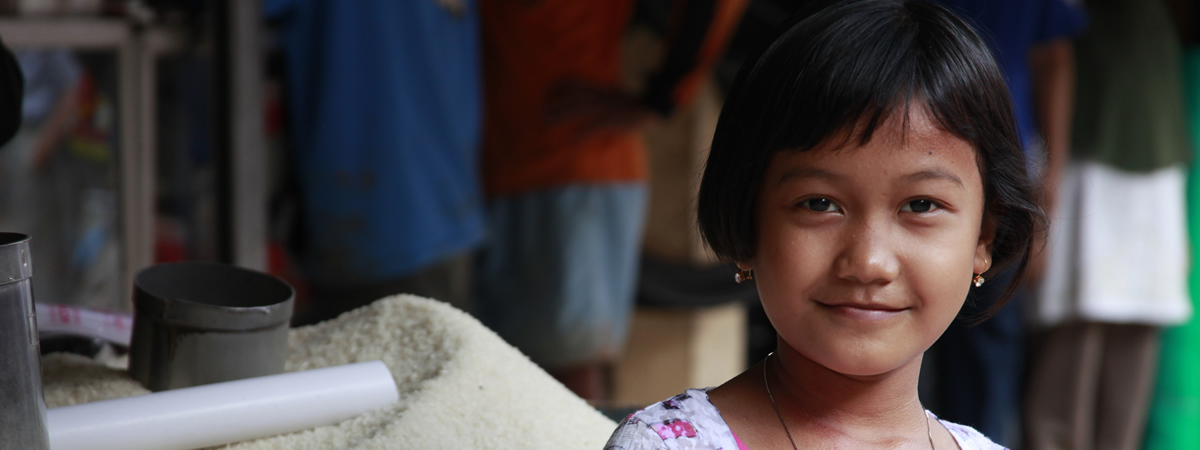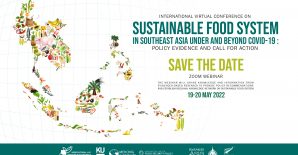News and Analysis
Tajikistan: Remittance Values Fall
(The Diplomat, 04 Jan 2016) Since May, a World Bank project–Listening2Tajikistan–has been calling a selection of Tajik households at regular intervals and conducting a survey aimed at gathering information regarding the impact of the country’s economic slowdown in several areas. As has often been discussed here, a secondary effect of Russia’s economic downturn–a product of low oil prices and sanctions–has been a drop in remittances across Central Asia. Tajikistan relies heavily on remittances and is Central Asia’s poorest state, therefore concerns were high that remittances would fall and workers would return to a country that didn’t have job for them. However, while the value of remittances has indeed fallen, workers are not returning in droves as some feared.
Agroinvestbonk, ICD sign memorandum of understanding
(Asia-Plus, 04 Jan 2016) According to press release issued by the Islamic Corporation for the Development of the Private sector (ICD) on January 4, ICD and Open Joint-Stock Company (OJSC) Agroinvestbonk of Tajikistan have signed a memorandum of understanding (MoU) for cooperation to consider extension of a Line of Financing facility to OJSC Agroinvestbonk as part of the country program allocation of USD 25 million for Tajikistan. The Line of Financing facility will be extended by OJSC Agroinvestbonk to the SMEs sector to project's in industrial, communication, technology, health, construction and agricultural sectors. In this occasion Mr. Khaled Al Aboodi, the CEO and General Manager of ICD, commented: “The small and medium sized enterprises (SMEs) have a crucial role to play in a country’s growth and development, and ICD has big plans for them. This is an important sector in all the member countries, including the higher income ones. ICD is now focusing on this sector by extending lines of finance to local banks in addition to the establishment of ASR Leasing Company in Tajikistan (a company specialized to provide Shariah compliant leasing products to the SME sector.”
The case for Central Asia as a European partner
(New Europe, 04 Jan 2016) The Western states can engage in a promotion of human rights in Central Asia at times when morality allows leading by an example. Can the EU can afford such a luxury? There is plenty of evidence that Europe can’t pretend of being morally superior. Can the EU be hesitant when new partnerships in Central Asia are at stake? In a post-Western world partnerships are becoming more crucial….
Kazakhstan Looks to Private Equity for Help With Its $93 Billion Cash Pile
(Bloomberg, 27 Dec 2015) KKR & Co. founder Henry Kravis, Blackstone Group LP Chairman Stephen Schwarzman and Carlyle Group co-founder David Rubenstein were among the guests when Kazakhstan President Nursultan Nazarbayev hosted a dinner in New York. Apart from the dining at the Four Seasons Hotel, there was access to a possible $93 billion on the table as Nazarbayev, who presides over Central Asia’s biggest energy exporter, seeks to boost returns on the country’s wealth funds. The $64 billion National Fund has struggled to achieve an average of 2 percent annually for the past five years. After President Nazarbayev, who spoke about investment opportunities in Kazakhstan and institutional reforms the nation embarked on this year, speakers from the U.S. including former Federal Reserve Chairman Ben Bernanke took the floor to talk about global geopolitical and economic challenges.
Envoy: Uzbekistan and Russia develop agreement on labour migrants
(UzDaily, 25 Dec 2015) Uzbekistan and Russia are developing a draft intergovernmental agreement on organized selection of the citizens for conducting temporary labour activities in Russia, the Russian Ambassador to Uzbekistan Vladimir Tyurdenev said. He said that the agreement will regulate processing of staying of citizens of Uzbekistan, who want to work in Russia, in the territory of the Russian Federation. He underlined that Russian migration legislation is improved regularly. He recalled that new order of attraction of foreign workers was introduced in Russia almost a year ago. He said that foreign workers, who do not need visas to enter Russia, should obtain special permissions to work in Russia.
Eurasian Economic Union starts working on a free trade zone with Iran
(Eurasian Economic Commission News, 24 Dec 2015) On December 23, Member States of the Eurasian Economic Union (EAEU) together with Iran launched a joint research on the prospects of concluding the free trade agreement. This was announced in Tehran by the Minister in charge of Trade of the EEC Andrey Slepnev and the Minister of Industry, Mines and Trade of Iran Mohamad Reza Nematzade. The established Joint Research Group (JRS) will assess the prospects of concluding such an agreement, identify opportunities for maximizing economic benefits, give specific proposals on its possible format, the framework of obligations of the Parties and the depth of cooperation in specific areas...
Kyrgyzstan included the top 25 countries in the index of Internet freedom
(Kabar, 24 Dec 2015) Kyrgyzstan ranks 22th in the index of Internet freedom in the world. The press service of the National Institute for Strategic Studies (NISS) of KR reports. An annual study of internet freedom around the world has been conducting by Freedom House since 2011 and is based on the methodology of expert assessments. It uses data from international organizations, government institutions, local and international media. The annual study examines the freedom of online distribution information of public interest, as well as protecting the rights of Internet users. In Kyrgyzstan, the Internet is partly free - 35 points. Among the countries of the former Soviet Union, only three countries ahead of Kyrgyzstan – this is Armenia -16th place, Georgia - 10th, Estonia – 2nd place. In the first place Iceland with 6 points, while the index closes by China gaining 88 points
European Union - Central Asia ministerial meeting
(Kabar, 23 Dec 2015) The Foreign Ministers of the Republic of Kazakhstan, Kyrgyz Republic, Republic of Uzbekistan, Deputy Foreign Ministers of Republic of Tajikistan, and the European Union's High Representative and Vice President of the European Commission held on 21 December in Astana, Republic of Kazakhstan the 2015 EU-Central Asia Ministerial Meeting. Participants discussed a wide range of issues of shared interest, including the development of overall relations between the EU and Central Asia, regional and international issues of mutual interest, combating common threats and challenges. The discussion on security issues will continue bilaterally and within the framework of the High Level Security Dialogue. Participants discussed the recent review of the EU Central Asia Strategy. The Foreign Ministers welcomed the European Union's commitment to engagement with the Central Asian countries and the significant increase to over EUR 1 billion of financial support to programmes to be implemented in Central Asia in the period 2014-2020.
Publications
The State of Agricultural Commodity Markets 2015-16
(FAO Report, Dec 2015) This edition of The State of Agricultural Commodity Markets aims to reduce the current polarization of views on the impacts of agricultural trade on food security and on the manner in which agricultural trade should be governed to ensure that increased trade openness is beneficial to all countries. By providing evidence and clarity on a range of topics, the report seeks to contribute to a more informed debate on policy choices and to identify required improvements in the policy processes within which these choices are made.
State of World 2015: Shelter from the Storm
(UNFP Annual Report, Dec 2015) We live in a world where humanitarian crises extract mounting costs from economies, communities and individuals. Wars and natural disasters make the headlines, at least initially. Less visible but also costly are the crises of fragility, vulnerability and growing inequality, confining millions of people to the most tenuous hopes for peace and development. More than 100 million people are in need of humanitarian assistance. Among those displaced by conflict or uprooted by disaster are tens of millions of women and adolescent girls. This report is a call to action to meet their needs and ensure their rights.
Economics of Land Degradation in Central Asia
(A. Mirzabaev, J. Goedecke, O. Dubovyk, U. Djanibekov, Q. Bao Le and A. Aw-Hassan. 2015. Economics of Land Degradation in Central Asia. Chapter in Economics of Land Degradation and Improvement – A Global Assessment for Sustainable Development. Pp 261-290.) Abstract: Land degradation is a major development challenge in Central Asia, with negative implications on rural livelihoods and food security. We estimate the annual cost of land degradation in the region due to land use and cover change between 2001 and 2009 to be about 6 billion USD, most of which due to rangeland degradation (4.6 billion USD), followed by desertification (0.8 billion USD), deforestation (0.3 billion USD) and abandonment of croplands (0.1 billion USD). The costs of action against land degradation are found to be lower than the costs of inaction in Central Asia by 5 times over a 30-year horizon, meaning that each dollar spent on addressing land degradation is likely to have about 5 dollars of returns. This is a very strong economic justification favoring action versus inaction against land degradation. Specifically, the costs of action were found to equal about 53 billion USD over a 30-year horizon, whereas if nothing is done, the resulting losses may equal almost 288 billion USD during the same period. Better access to markets, extension services, secure land tenure, and livestock ownership among smallholder crop producers are found to be major drivers of SLM adoptions.




Leave a Reply